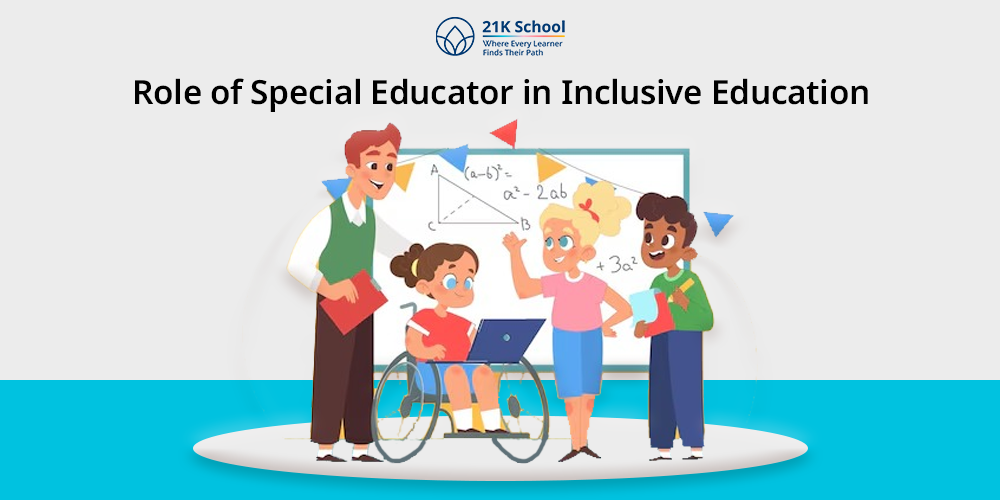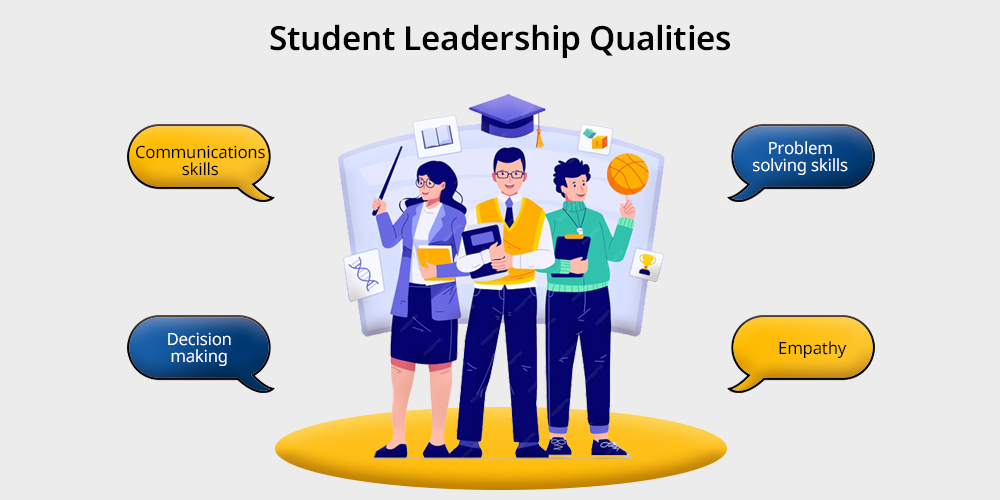
If I was to ask you — which is the most important skill?
What would be your answer?
According to me — Leadership is a very important skill.
As we at 21K School believe that, Leadership goes beyond the boundaries of academic life and it extends to every facet of life.
It makes a student a well-rounded individual, who is prepared for real life.
For a student to cultivate leadership ability is not only to prepare them for the future but rather it is to enable them to put forward a meaningful contribution into the community and in their social life.
Leadership is associated with somebody; it often comes with authority and power which is a myth to society as leadership is more about the ability to inspire, guide and influence people positively.
The article further deals with the importance of leadership in students and also outlines the major leadership quality that a child should have.
Table of Contents
tance of Leadership in Students
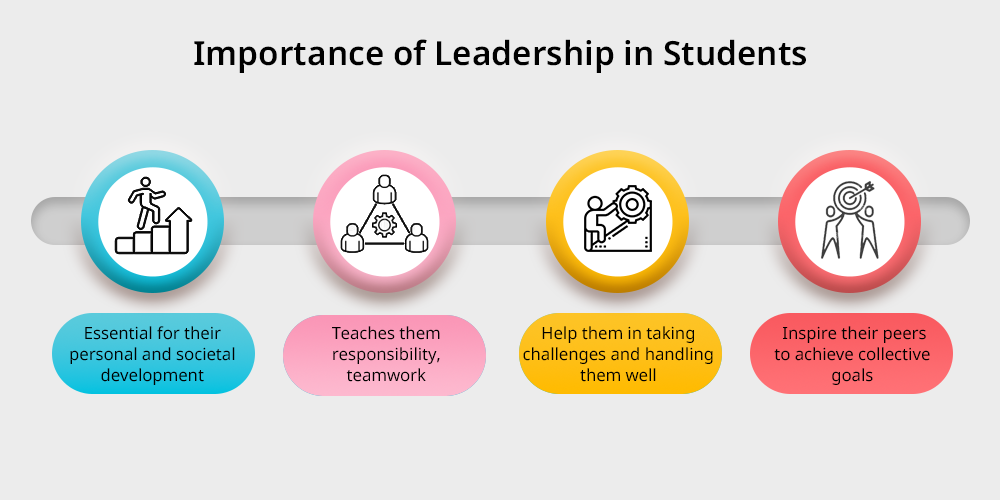
Leadership in students is essential for their personal and societal development as it is very important for them to take responsibility for their actions at a very young age.
Leadership teaches them responsibility, teamwork and the value of these activities as they are more likely to make informed decisions in their life.
Students who exhibit leadership skills are often better equipped with skills that will help them in taking challenges and handling them well which also makes them well suited to inspire their peers to achieve collective goals in their life.
Leadership brings in a sense of purpose to a student’s life and builds confidence in them which makes them proactive and solution oriented towards real life situations.
Leadership skills are transferable to various aspects of life whether from an academic point of view or to extra curricular activity.
Leadership quality also contributes to a student’s career development and their future relationship aspect of life as it empowers them to lay a foundation for their roles in the society.
Core Student Leadership Qualities
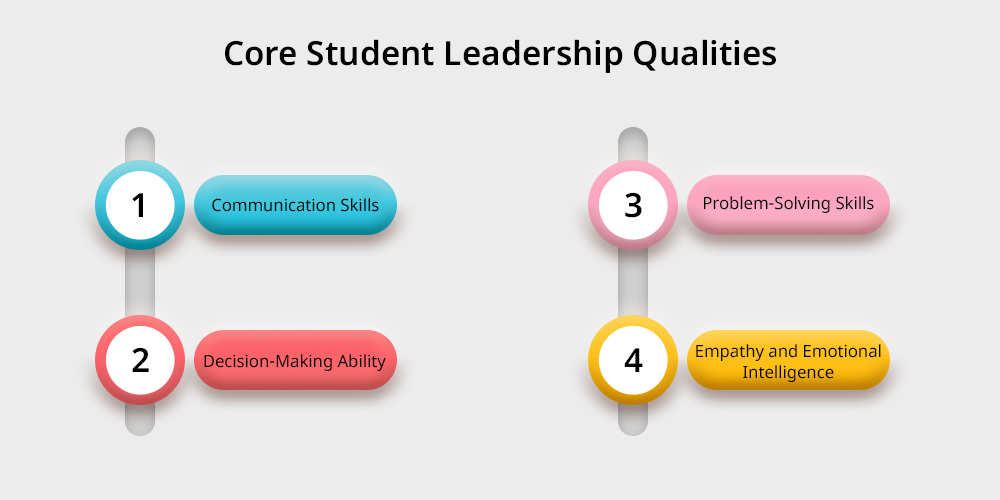
1. Communication Skills
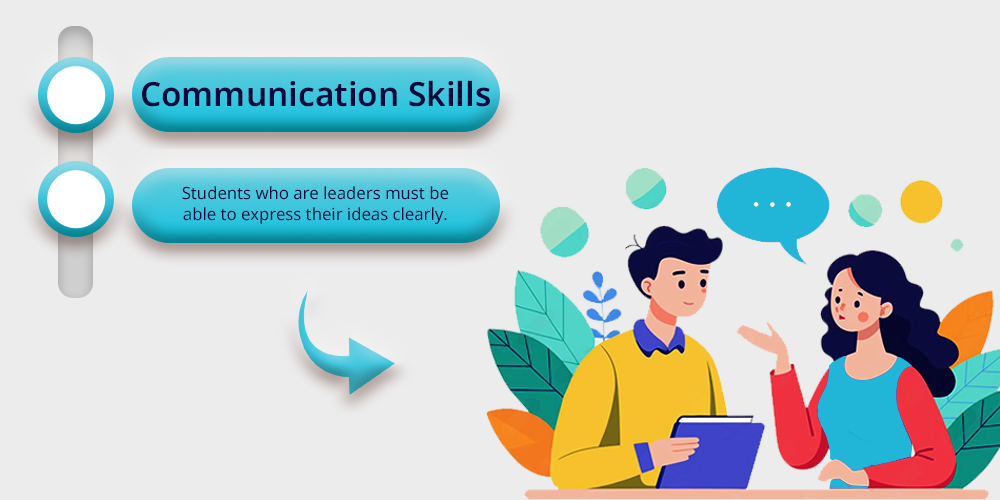
Communication skill is one of the major traits of a good leader as effective communication makes a person put forward his or her leadership skills.
Students who are leaders must be able to express their ideas clearly and should also listen to others at the same time.
Whether addressing a group or working on a collaborative project it is very important for students to have a strong communication which will put forward their message in a way that it is well understood and with this they can also understand other people’s perspectives well.
2. Decision-Making Ability

Decision making skills come naturally to leaders as leaders are often involved in a situation where they have to make tough decisions.
Students who demonstrate the ability to think of other options and consider consequences of the reactions they choose the best course of action for themselves which exhibits strong decision making skills in them.
This quality ensures effective problem solving in them and also inspires people around the leaders to trust them.
3. Problem-Solving Skills
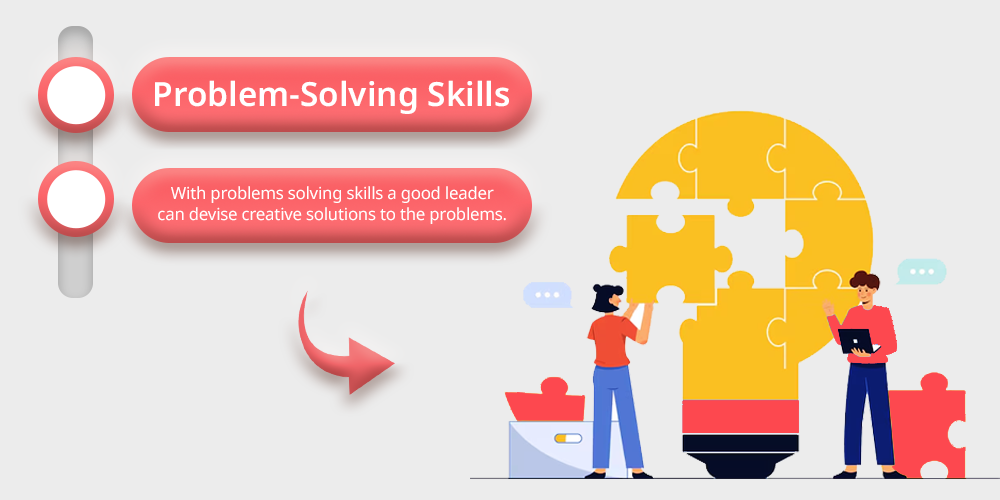
Problem solving skill is a critical aspect of a leader’s life as a good leader always identifies issues and analyses multiple angles from which the solutions can be conceived.
With problems solving skills a good leader can devise creative solutions to the problem from multiple perspectives.
For a student, problem solving skills can help them in addressing academic challenges or resolving interpersonal conflict between the class.
With problem solving and analytical skills students can find innovative ways to improve group performance and work towards a collaborative goal with more efficiency.
4. Empathy and Emotional Intelligence
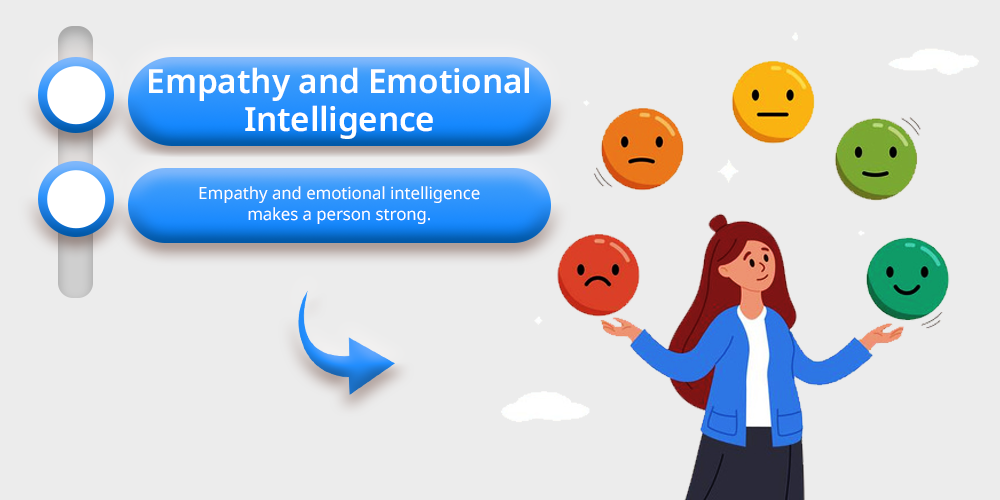
Empathy and emotional intelligence makes a person strong and as a leader it is very important to understand and consider other people’s feelings.
Empathy teaches leaders to put themselves and other people’s shoes to actually feel the emotion.
Empathy and emotional intelligence is believed to make leaders strong as it helps them and empowers them to build stronger relationships in their life with inclusivity.
It also helps leaders in addressing the needs of their fellow classmates more effectively and ultimately this helps in creating a supportive and respectful environment for themselves and in their environment.
Character Traits of a Student Leader
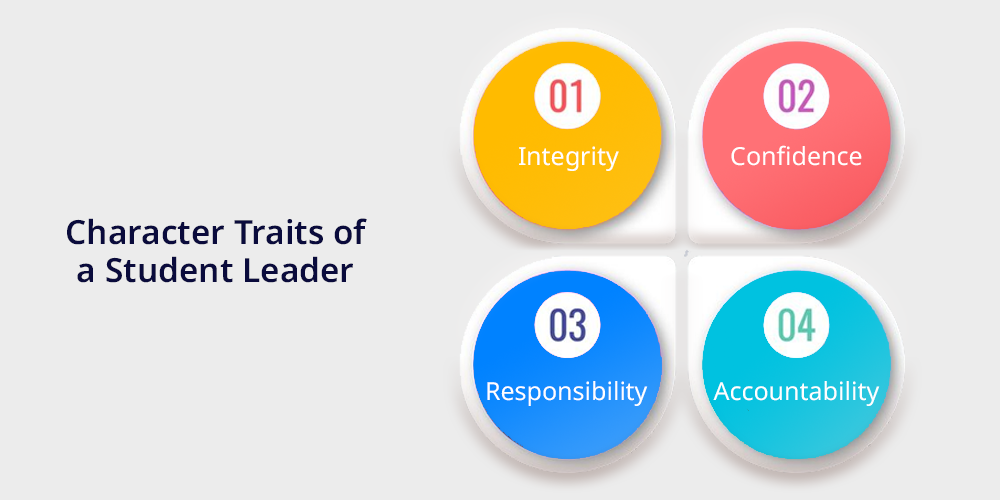
1. Integrity
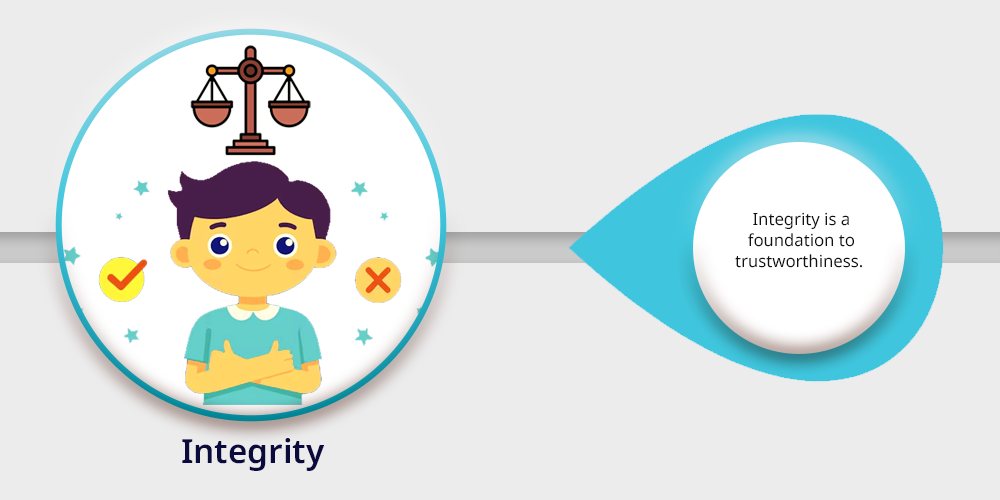
Among the character traits of a student leader the most important one is integrity.
Integrity is a foundation to trustworthiness.
A leader with integrity is honest, ethical and consistent in their actions and behaviours where they set examples of moral conduct and on respect from their mentors and peers which is well reflected in their confidence.
2. Confidence

Confidence is built overtime for students and when you are a leader confidence allows you to take charge and face challenges head on.
For a student confidence is the ability that helps them and motivates them to handle responsibilities and make decisions with convection on behalf of their peers.
However confidence must be balanced with humility to avoid arrogance and rude behaviour coming forward along with decision making.
3. Responsibility
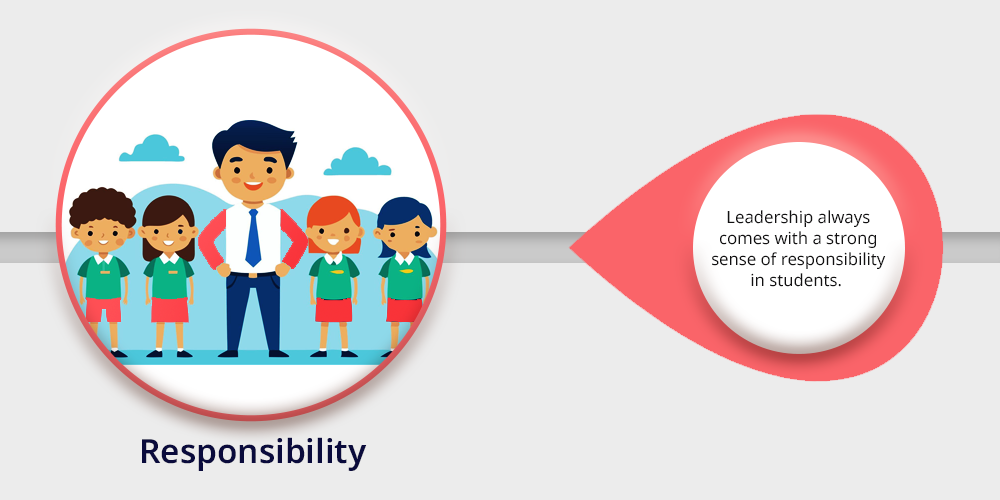
Responsibility is a hallmark for a good leader as effective leadership always comes with a strong sense of responsibility in students.
Responsibility makes a student reliable which ensures that they are fulfilling commitment and taking ownership of their own actions.
Responsibility is a treat which instills trust in people and demonstrates the capability that a leader has to manage the task effectively.
4. Accountability
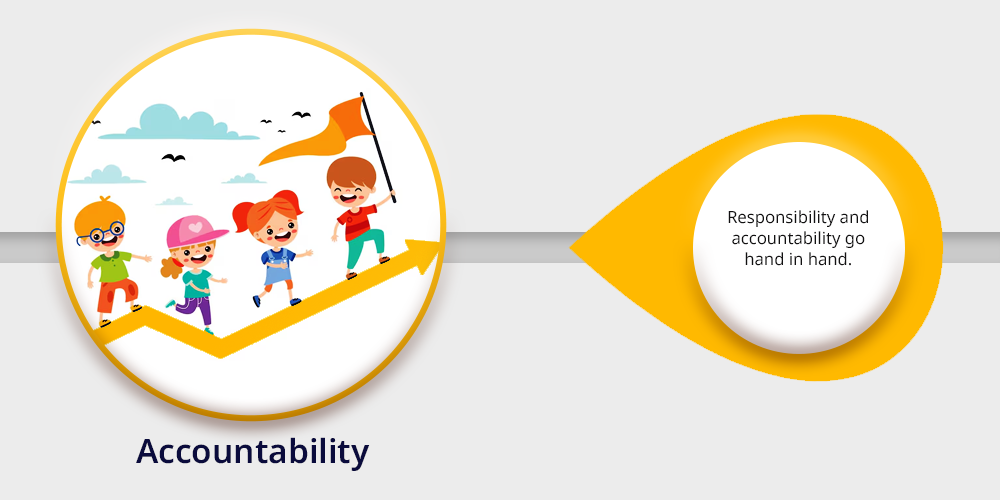
Responsibility and accountability go hand in hand as a person who is responsible will be willing to accept feedback and acknowledge their mistake with time and will come up with constructive ways to amend their mistakes as and when needed.
So a leader must be accountable to their subordinate and in this case a student who is the leader should have open communication channels for feedback and constructive criticism.
Responsibility and accountability together create a transparent environmental group which creates a culture of trust and continuous improvement in the activities.
Interpersonal Skills
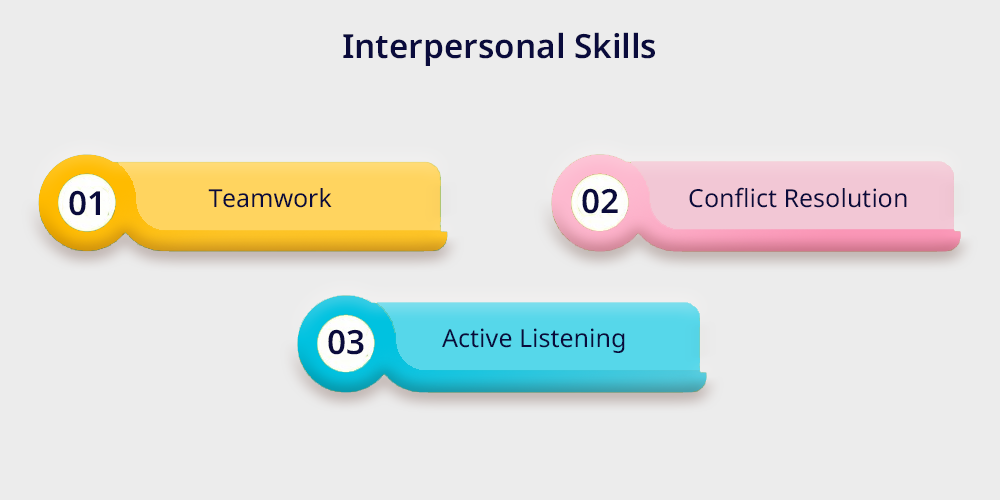
1. Teamwork

Leadership is not about individual achievement as it has more to do with group activity where there is a group of people who are aiming to succeed together and achieve things together.
Student leaders must be team players as individually you cannot work towards a common goal and believe that everybody agrees with the terms as then it will look more like an authoritative ruling.
A leader must remember that it is very important to unite and work towards a common goal and in this journey they need to value diverse opinions and encourage inputs from people to encourage collaboration for collective growth.
2. Conflict Resolution
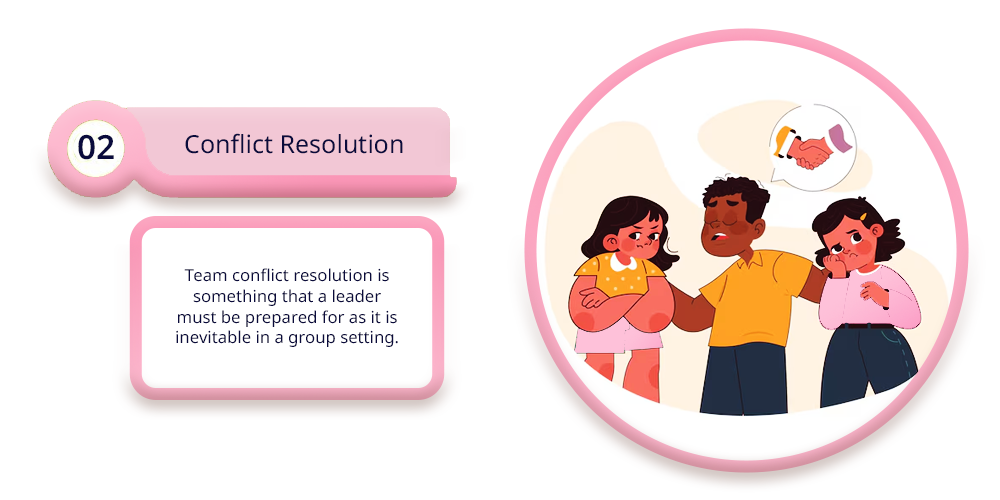
And when working in a team conflict resolution is something that a leader must be prepared for as it is inevitable in a group setting.
Resolving conflict effectively is a critical part of a leader’s life and it contributes immensely towards the leadership skill.
It is believed that a leader should approach conflicts with a calm and impartial mind set regardless of the personal opinion towards the person involved in the conflict.
Leaders should understand all perspectives without any biases and meditate on solutions that benefit everyone involved in the situation.
3. Active Listening
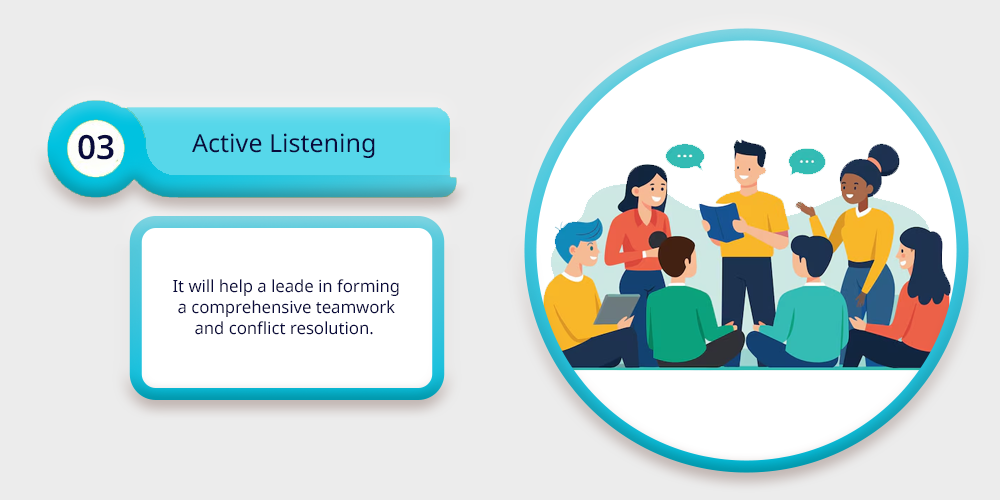
Active listening leaders can do wonders and it is a very important part of interpersonal skills which will help a leader in forming a comprehensive teamwork and conflict resolution.
Active listening involves paying full attention to the speaker and understanding their message without any biases and responding to it thoughtfully, being sure that you are not reflecting any judgement that goes beyond and above the common goal that you are working on.
By active listening leaders show respect towards their peers and build stronger relationships with them, as it seems to peers that the leader is being cooperative and understanding at all times and aspects.
Academic and Organizational Skills
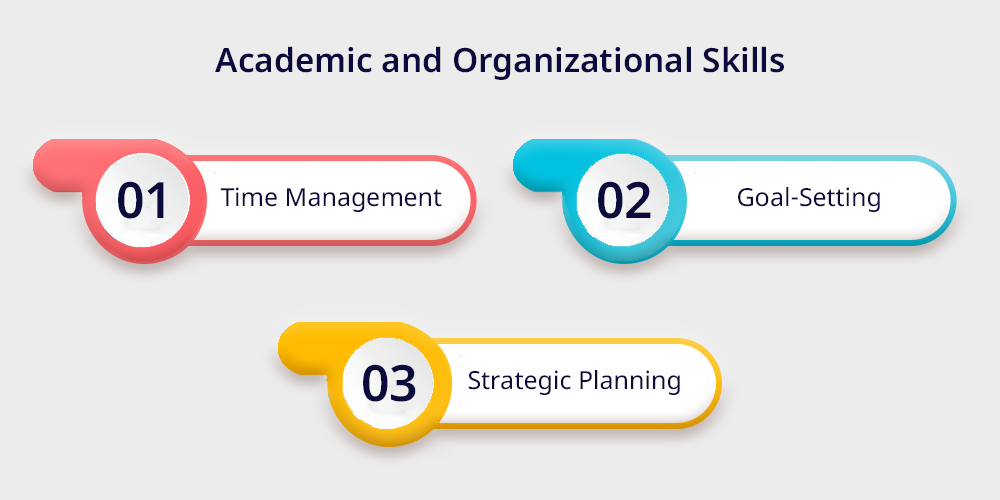
1. Time Management

Time management is a lifelong learning process, though when achieved at the right time, it can make miracles happen.
It is an ongoing process of planning and exercising control over their time consciously.
A good leader is believed to be balancing academics, extracurricular activities, and leadership responsibilities effortlessly, which can only be achieved through excellent time management.
Student leaders must prioritize tasks and set deadlines for themselves as it is very important to allocate their time effectively on every aspect of things that they are working on to demonstrate their commitments ensuring that they don’t compromise on quality.
But, How can Students Improve Time Management Skills ?
2. Goal-Setting
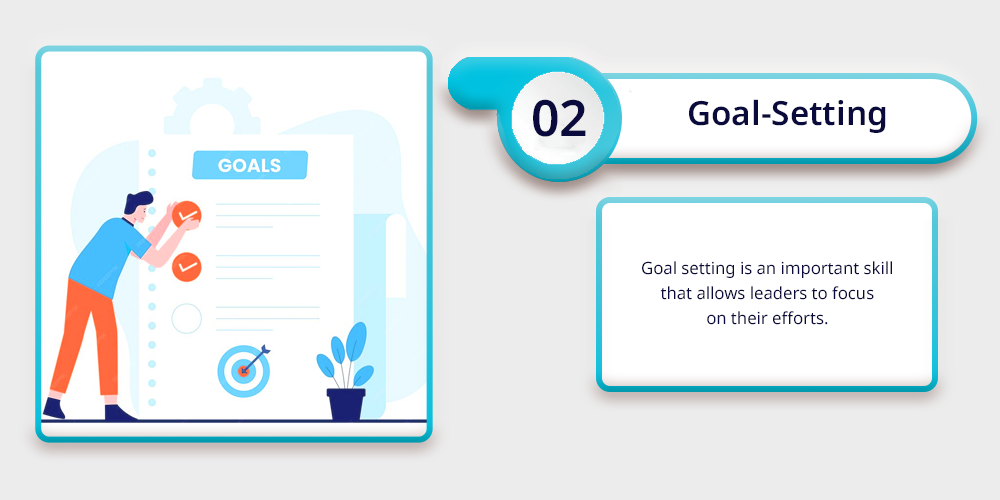
Goal setting is very important to a leader as it is suggested for them to break their work into smaller chunks so that it becomes more manageable and measurable.
Goal setting is an important skill that allows leaders to focus on their efforts which contribute well to the progress and measure it effectively.
Student leaders should establish clear and achievable goals for themselves and discuss it with their team ensuring maximum participation and motivating others to work.
Goal setting is done by leaders to ensure that they are collectively working towards success and everyone involved is aligned with the bigger picture of success and is not disoriented at any point of time.
3. Strategic Planning
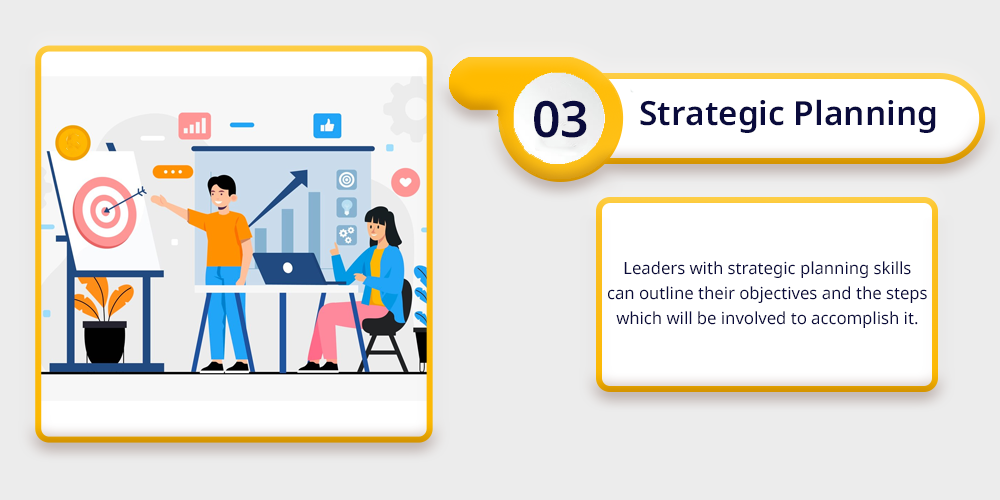
Effective leadership involves strategic planning as it takes in concern the planning, organising and management skills of a person to take care of resources which will help them in achieving the desired outcome.
Leaders with strategic planning skills can outline their objectives and the steps which will be involved to accomplish it while anticipating the challenges and ensuring that they adapt to the strategies well and come up with constructive solutions that are creative and effective.
Strategic planning is a skill that helps leaders in ensuring the efficient use of all the resources being available and also contributes to time management.
Motivational Attributes
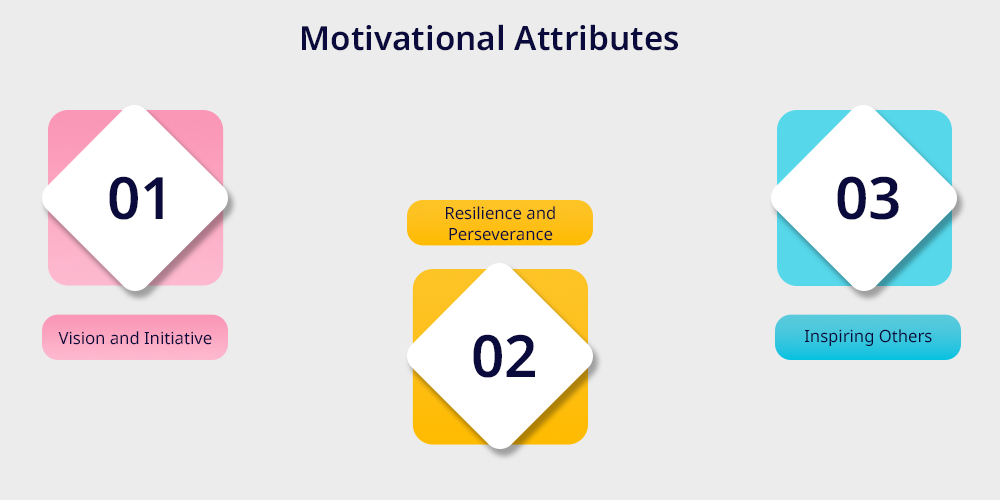
1. Vision and Initiative
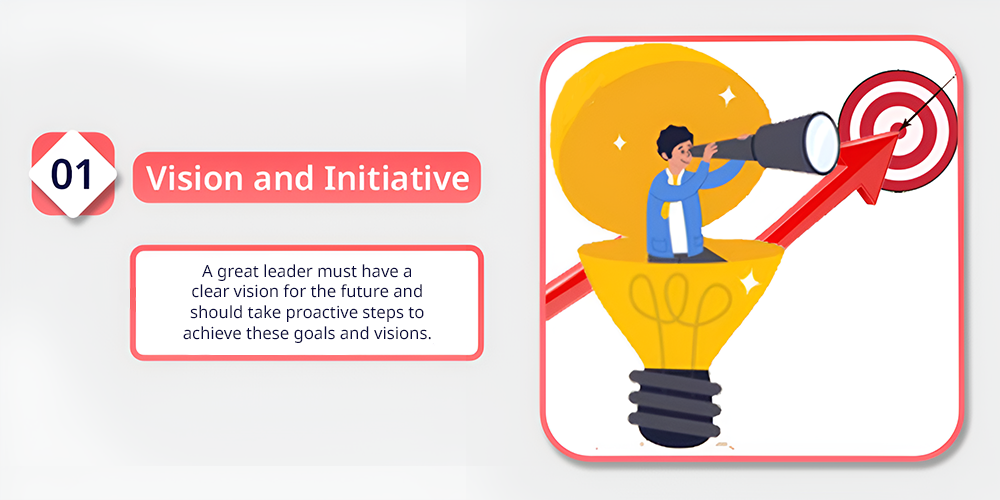
When it comes to motivational attributes a great leader needs to have all the attributes that help them in motivating others involved in the group.
It is believed that a great leader must have a clear vision for the future and should take proactive steps to achieve these goals and visions.
A student who is aiming to become a leader should come up with a strong sense of purpose which will inspire others by sharing their visions and motivating them to work effectively and efficiently towards it.
When a leader shares their perspective and feels empathetic towards the peers it is believed that they are motivated to work towards success and with initiative they can drive progress and encourage people to take action.
2. Resilience and Perseverance
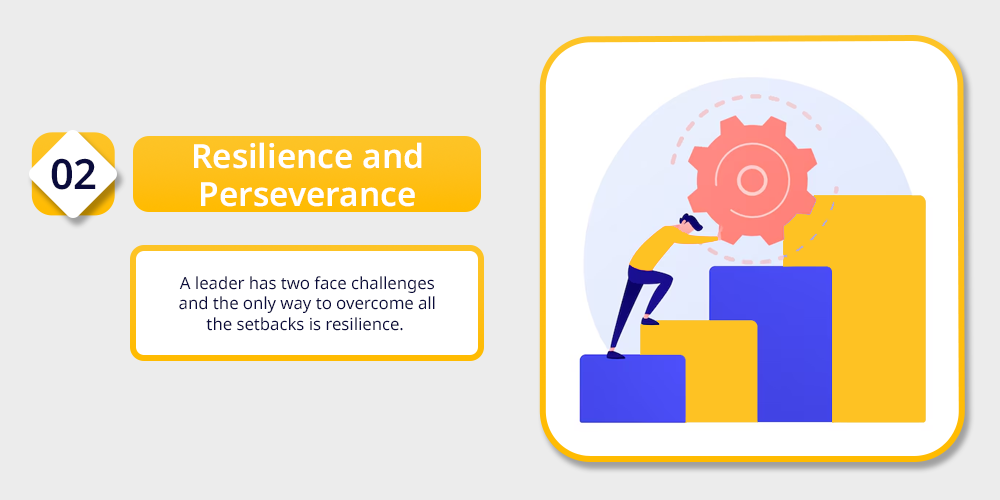
Leadership cannot work a day without resilience and perseverance as a leader has two face challenges and the only way to overcome all the setbacks is resilience.
Students who demonstrate perseverance remain committed to their work goals and are always aligned with their goals, which motivate them to work for it despite obstacles.
The commitment to work sets an example of determination and grit among the fellow members which motivates them and encourages them to participate with such dedication.
3. Inspiring Others
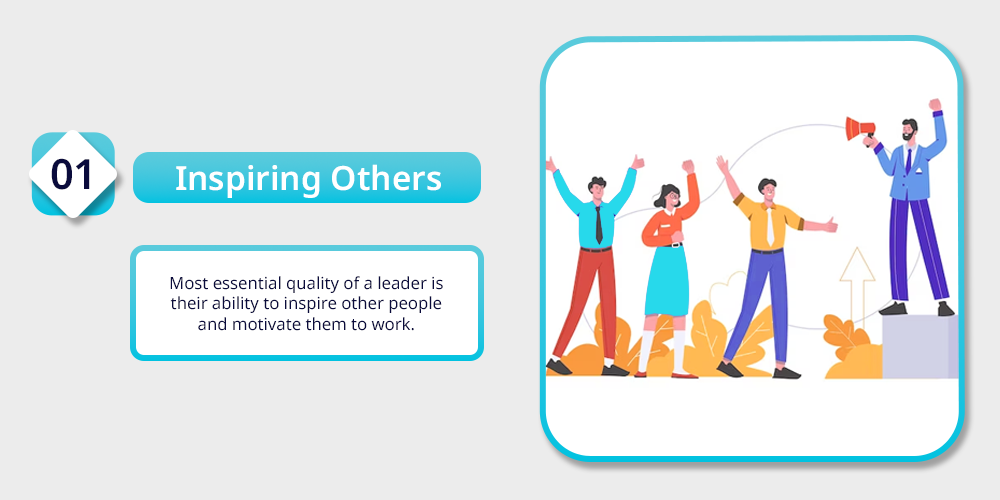
And the most essential quality of a leader is their ability to inspire other people and motivate them to work for the common goal that they are aiming to achieve.
Leaders who motivate their peers and team members to meet their potential and create a positive environment which is productive and contributes well to the goal are considered as great leaders.
Leaders can create a productive and positive environment by recognising and celebrating the achievements of others which will create a culture of encouragement and support motivating them to work hard for recognition and will develop a sense of achievement in other members of the team.
Practical Tips to Foster Leadership
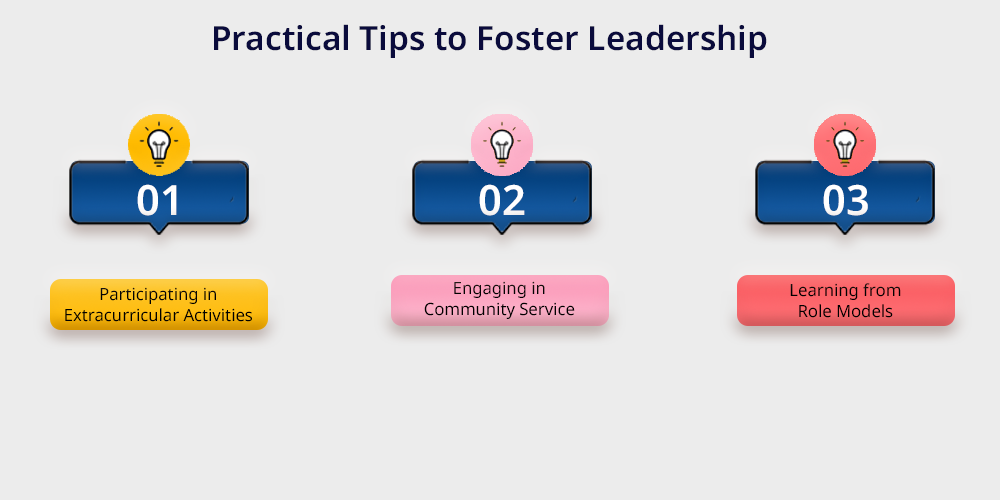
1. Participating in Extracurricular Activities
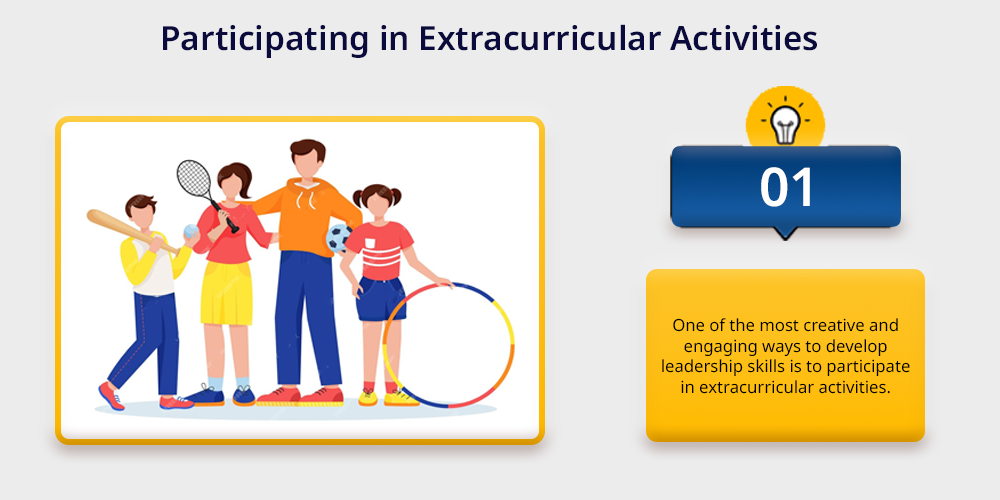
One of the most creative and engaging ways to develop leadership skills is to participate in extracurricular activities.
These extra curricular activities will provide students with the opportunities where they can take leadership roles and serve well and develop the skill in a fun way.
Some of the basic examples of extra curricular activities that a student can consider to get involved in are : serving as a team captain, being a club president or organising events under schools and colleges.
These experiences say that students during their school and colleges develop skills of teamwork, communication and decision making which help them in solving problems more effectively and provides them a brief insight into what a leadership role will look like.
2. Engaging in Community Service
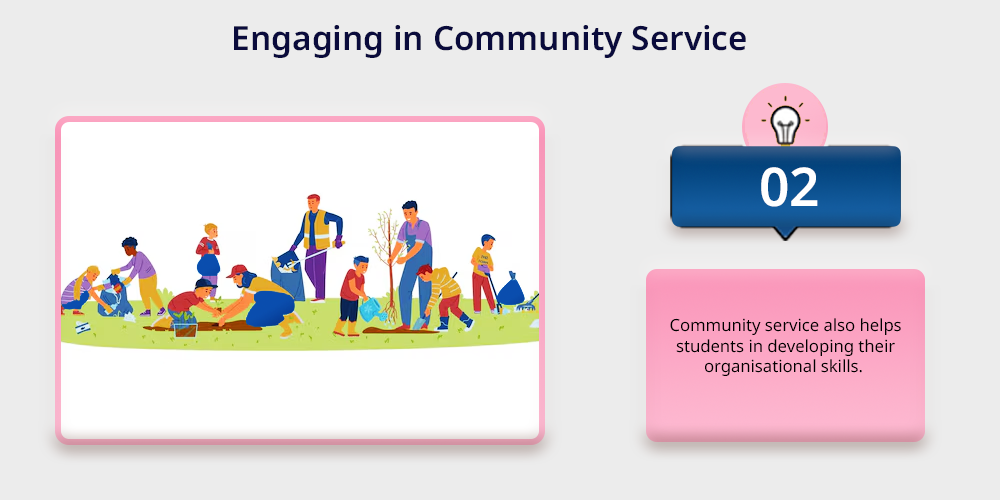
Students can also get involved in community services as it can be an excellent way for them to develop a sense of empathy and responsibilities.
Community service also helps students in developing their organisational skills.
By participating in such activities that are contributing towards the society which can benefit others and will help students in gaining a deeper understanding of their role as leaders in the community which will make changes for the society.
These activities that are dedicated towards communities will connect students with their society and will make them more aware and well rounded individuals who are prepared for the future.
3. Learning from Role Models
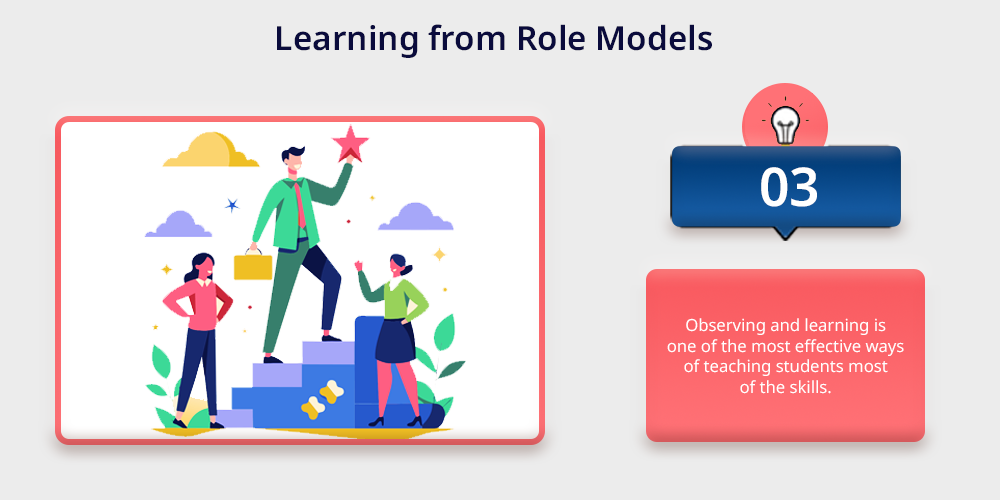
It is suggested for educators and parents to provide them with examples so that they learn from their role models.
Observing and learning is one of the most effective ways of teaching students most of the skills that we have discussed about and in order to become an effective leader it is very important to learn from the surroundings.
Students can look for role models in their teachers, family members and historical figures who inspire them to emulate positive traits from.
Engaging in mentally programs and seeking guidance from experienced individuals and industry exports can help students in enhancing their leadership skills and will contribute to overall development.
Here’s a blog on : 15 Life-Changing Success Stories to Fuel Your Life Journey
Conclusion
Leadership is a journey which is transformative.
It is all about quality that empowers students to make a difference in their lives and in the lives of others.
It is not about being selfish towards their own achievement but rather working together towards a common goal in a group.
By developing the qualities that are integral such as communication, decision making and empathy can help students in developing and cultivating all the character traits that positively affect them and contributes to their journey of becoming an effective leader.
Practical experience at a young age involved in the form of extra curricular activities and community service can help them in enhancing their abilities as they prepare for the future challenges and inspire for a change.
Ultimately it is very important for a leader to invest in their brighter future so that they are contributing meaningfully to the community and giving back to the world.



